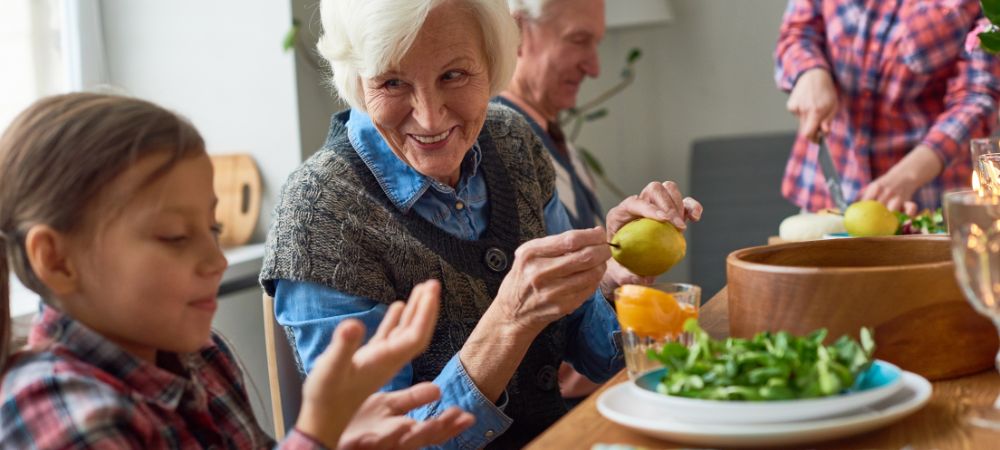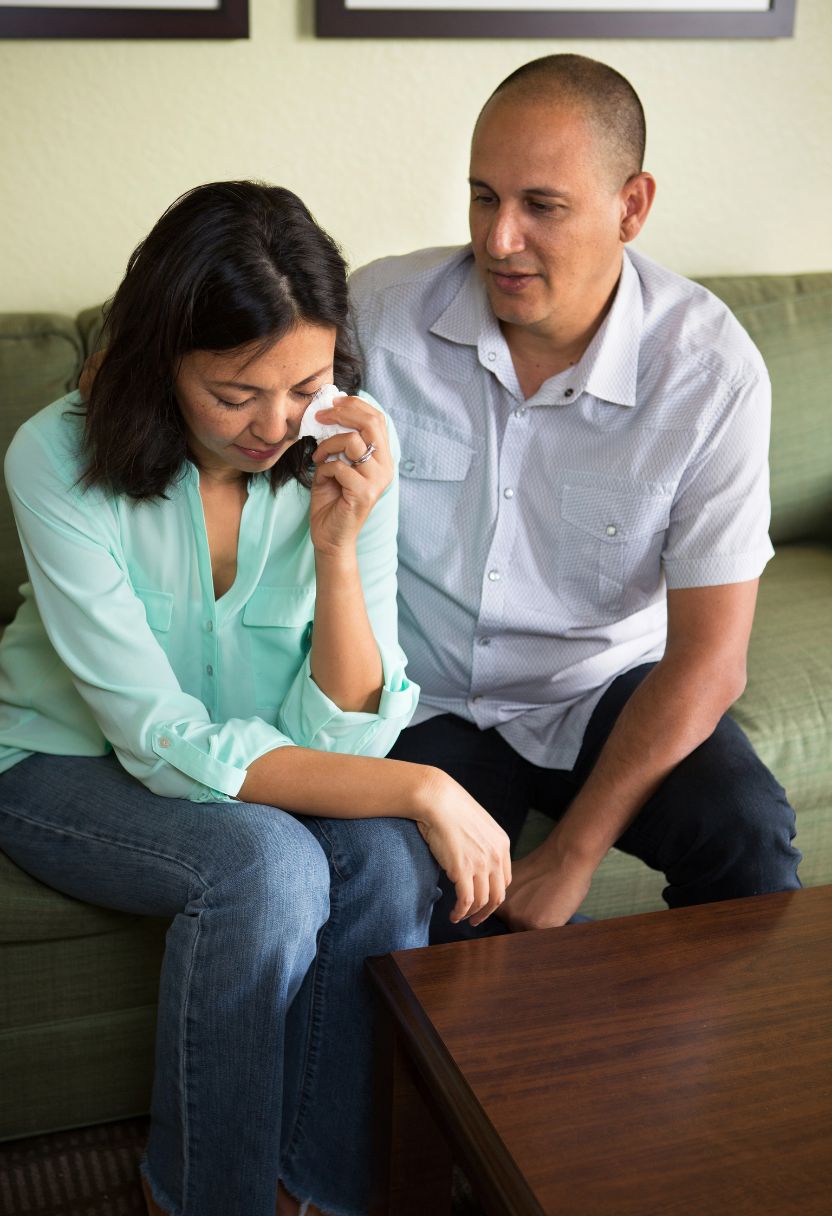

When it comes to family relationships, legal and custody issues can be pretty darn complicated. I mean, no one really wants to find themselves in a courtroom battling over who gets to see the kids on weekends, right? But, let's face it, these things happen more often than we'd like to admit.
First off, it's important to understand that not all family disputes end up in court. Access further information click below. Some folks actually manage to work things out amicably. They might sit down at the kitchen table with a cup of coffee and just hash things out. No lawyers, no judges – just two people trying to do what's best for their kids. But when that doesn't work (which is oftentimes the case), that's when legal issues rear their ugly heads.
The most common legal issue in family relationships is probably divorce. When a couple decides they can't stand each other anymore and want out of the marriage, they have to go through a whole legal process. It's not as simple as saying "I quit" and moving on with your life. There's paperwork involved – lots of it! Not only do you have to legally end the marriage, but if there are children involved, you also need to figure out custody arrangements.
Custody battles can get real nasty real quick. One parent might accuse the other of being unfit or neglectful just so they can gain full custody of the kids. And let's not even get started on child support payments! Sometimes parents use money as a weapon against each other which only makes matters worse for everyone involved.
But there's hope – mediation exists! Instead of dragging each other through courtrooms and letting a judge decide your fate (and your children's), some couples opt for mediation where an impartial third party helps them reach an agreement that's fair for both sides...and more importantly, good for their kids too!
Another thing worth mentioning is grandparents' rights. Believe it or not, grandparents sometimes have to fight tooth and nail just for the right visit their grandkids! It's sad but true; sometimes strained relationships between parents trickle down and affect extended family members too.
view .
In summary: dealing with legal and custody issues within family relationships ain't easy by any means! Whether it's divorce proceedings or custody battles – these situations are emotionally charged minefields that require careful navigating (and maybe even some professional help). So while we can't completely avoid these problems altogether...we sure can approach them thoughtfully n' try our bests ta resolve 'em without tearing each other apart in process.
When it comes to custody arrangements, there ain't no one-size-fits-all solution. Every family is unique, and so are the types of custody setups that might work best for them. Let's dive into a few common ones: Joint, Sole, Physical, and Legal custody.
First off, let's talk about joint custody. It's not always easy, but many parents find it's worth the effort. In a joint custody arrangement, both parents share responsibilities and decisions regarding their child's upbringing. This doesn't mean the child lives with both parents equally; rather, they spend significant time with each parent. It's all about cooperation here! Parents have to communicate well and make decisions together about their kid's education, healthcare and general welfare.
Then there's sole custody. Now this one's a bit different-one parent gets most of the decision-making power and often primary physical care of the child. The other parent might get visitation rights or some form of contact but isn't involved in everyday decisions. This type can be necessary when one parent ain't fit to take on those responsibilities due to issues like substance abuse or neglect.
Physical custody refers specifically to where the child lives most of the time. It could be with just one parent (in which case we call it sole physical custody) or split between both parents (joint physical custody). Kids usually benefit from having stability in their living situation but splitting time between two homes can work too if done right.
Finally there's legal custody-which ain't quite what it sounds like at first glance! Legal custody gives a parent-or sometimes both-the authority to make major life decisions for their child such as schooling, medical care and religious upbringing. Much like joint versus sole physical custody you can have joint legal or sole legal based on what works best given the circumstances.
In reality weaving through these terms isn't straightforward because every situation has its own nuances-no cookie cutter solutions here folks! But whatever setup families end up choosing they need flexibility understanding patience...and yep lotsa love!
Making these choices is never simple-it requires understanding what's best for everyone involved especially kids who depend on adults around them making sound compassionate choices even under tough conditions!
Grandparents have always been an integral part of family life, providing wisdom, love, and support to their children and grandchildren.. However, in today's fast-paced world, modern grandparents face numerous challenges in fulfilling their roles effectively.
First off, let’s talk about the technological gap.

Posted by on 2024-07-04
Sibling relationships have a significant impact on personal development, and this is evident from various case studies and research findings.. These relationships are unique and complex, shaping individuals in ways that are not always immediately obvious.

Posted by on 2024-07-04
Extended families, a term that refers to familial networks beyond the nuclear family—parents and their children—have long been a cornerstone of society.. They include grandparents, aunts, uncles, cousins and even close friends who are considered family.

Posted by on 2024-07-04
Transforming family dynamics ain't always easy, but fostering a supportive and nurturing environment can truly make a world of difference.. You might think it's all about grand gestures and elaborate plans, but nope!

Posted by on 2024-07-04
**Celebrating Milestones Together: Uncover the Hidden Techniques for Lasting Connections**
Strengthening family bonds ain't just about spending time together; it's about making those moments meaningful.. One of the most powerful ways to do this is by celebrating milestones and special occasions as a family.

Posted by on 2024-07-04
When it comes to custody decisions, courts don't just toss a coin and call it a day. They consider a myriad of factors, trying their best to act in the child's best interest. Parents often think they know better, but let's face it, emotions run high and common sense sometimes flies out the window.
First off, judges look at the child's age. Younger kids might need more stability, while older ones might benefit from having a say in where they want to live. It ain't always pretty – kids can get caught in the middle of some nasty battles.
Another biggie is each parent's ability to care for the child. It's not about who has more money or a bigger house; it's about who can provide love, guidance, and support. Courts aren't too fond of parents with substance abuse issues or those who've had brushes with the law.
Don't forget about emotional bonds! The relationship between parent and child is scrutinized closely. If one parent has been more involved in daily routines like homework and bedtime stories, that could tip the scales in their favor.
Oh boy, here comes another factor – parental cooperation or lack thereof. Judges are wary of parents who bad-mouth each other or refuse to communicate. Co-parenting isn't easy peasy lemon squeezy but showing you can work together (even just a little) goes a long way.
The child's home environment also gets examined under a microscope. A stable home life counts for plenty – schools nearby, safe neighborhood, close family ties – all these make up part of that equation.
But wait – there's more! Health plays its role too. If one parent has significant health problems that impair their ability to care for the kiddo properly? Well then folks, that's probably gonna affect custody outcomes as well.
Sometimes cultural considerations come into play especially if maintaining certain traditions or religious practices is important for keeping continuity in children's lives.
And lest we forget - any history of domestic violence looms large over these proceedings like an ominous cloud casting shadows everywhere!
In conclusion (it ain't rocket science), when deciding custody matters courts juggle various factors aiming towards what serves best interests of child overall despite whatever chaos swirls around them!


When it comes to legal and custody issues, the role of mediation and alternative dispute resolution (ADR) can't be overstated. These methods offer a way out from the traditional courtroom battles that most people dread. They're not only about finding a middle ground; they're also about fostering better relationships between parties.
Mediation is like having a referee who's not on anyone's side. The mediator helps both parties talk through their problems, aiming for a solution that's acceptable to everyone involved. This process isn't exactly easy, but it's generally less confrontational than going to court. Plus, it can be quicker and cheaper too.
ADR includes more than just mediation. Arbitration is another form where an arbitrator listens to both sides before making a decision that's usually binding. It's like court but without all the formalities-and often less stress! Sometimes, arbitration can feel unfair if you're stuck with an arbitrator who doesn't quite get your perspective.
Custody issues are particularly tricky because they involve children's lives. Parents may have different ideas about what's best for their kids, leading to heated arguments and emotional turmoil. Mediation provides a space where parents can discuss these matters calmly-or at least try to! It encourages them to think beyond their own interests and consider what's actually good for the child.
One big advantage of mediation in custody cases is flexibility. Courts have rigid rules and timelines; mediators don't necessarily follow those same constraints. They can schedule sessions when it suits everyone involved, making life just a bit easier in already tough times.
But let's not kid ourselves-mediation isn't always smooth sailing. There are situations where power imbalances make fair negotiation almost impossible, such as in cases involving domestic violence or severe inequality between parties' resources or knowledge about legal complexities.
So why isn't ADR used more often? Well, some folks distrust these methods because they feel informal processes might overlook important legal standards or rights protections guaranteed by courts. And let's face it: Some people just want their day in court!
However, when used properly, ADR offers significant benefits over traditional litigation-not just financially but emotionally too. Families facing custody disputes don't need more conflict; they need solutions that support ongoing cooperation rather than further division.
In conclusion (not trying to sound too formal here), while ADR has its limitations and isn't perfect for every situation-it certainly offers valuable alternatives worth considering seriously before jumping into courtroom drama that nobody really wants anyway!
When it comes to custody decisions, the impact of domestic violence can't be ignored. Courts are tasked with making choices that prioritize the best interests of the child, and any history of abuse plays a big part in these deliberations. After all, who'd want to place a child in a potentially harmful environment?
Domestic violence doesn't just affect the victim; it ripples through the entire family. Children who witness or experience abuse often suffer from emotional and psychological issues. They're not gonna thrive in an unstable setting. So, judges take this into account when deciding where a child should live.
However, it's not always cut and dry. Some people argue that accusations of domestic violence can be exaggerated or even fabricated during custody battles. It's true; there have been cases where one parent falsely accuses the other just to gain an advantage. The court must sift through evidence to determine what's real and what's not-a challenging task.
On top of that, some abusers might try to convince everyone they're reformed, attending anger management classes or therapy sessions as proof. But can they really change? Sometimes yes, sometimes no. Judges have to weigh these factors carefully before making a final decision.
It's also worth mentioning that domestic violence isn't solely physical; emotional and psychological abuse can be just as damaging but harder to prove. And let's face it-no one's perfect at catching every red flag.
In conclusion, while domestic violence significantly impacts custody decisions, it's never straightforward or easy for courts to make the right call every time. They aim for the child's well-being above all else but navigating through allegations, evidence, and human behavior is complex work indeed!


Rights of Non-Biological Parents and Stepparents: Legal and Custody Issues
When it comes to the rights of non-biological parents and stepparents, things ain't always as clear-cut as one might think. Family structures have changed a lot over time, but the legal system? Well, it's kinda lagging behind. It can be pretty confusing for folks trying to figure out their rights when they're not the biological parent.
First off, let's talk about non-biological parents. These are people who assume the role of a parent without having any genetic ties to the child. This could be someone in a same-sex relationship or even just a long-term partner who's stepped into that parental role. They often find themselves facing more hurdles than they should. Seriously, why should biology dictate love and responsibility?
Non-biological parents don't automatically get legal recognition in many places. If something happens to the biological parent, like illness or death, the non-bio parent may not have any say in what happens to the child. Isn't that just unfair? Many jurisdictions require formal adoption or guardianship proceedings for these parents to gain any sort of legal standing.
Stepparents face similar issues but with some unique twists. Marrying someone with kids doesn't instantly grant you parental rights-nope! You can't make medical decisions or even sign school forms without permission from both biological parents (unless there's a court order). And if your marriage ends? The chances are high that you'll lose all custodial rights unless you've adopted those stepkids.
Adoption is an option but it's not always easy or quick. It requires consent from both biological parents unless one's parental rights have been terminated due to neglect or abuse or other reasons deemed fit by law. Even then, courts can sometimes drag their feet on such matters.
But hold on! There's hope yet-some states are catching up with reality by recognizing "de facto" parents who have formed strong bonds with children over time despite lacking biological connection or formal adoption papers. Courts look at factors like emotional ties between adult and child before making custody decisions favoring these de facto relationships.
Still though, many people argue that laws need further evolution because they're still too rigid; modern families come in all shapes and sizes after all!
It's also important remember while laws evolve slowly society moves faster causing emotional distress among those caught between old rules new norms especially during separations divorces where stakes highest involving innocent kids' futures stability security well-being paramount concerns everyone involved including judges lawyers social workers most importantly families themselves navigating complicated terrain filled uncertainties dilemmas ethical considerations respect empathy understanding compassion required resolve conflicts fairly equitably possible ensuring best interests children forefront every decision made regard less complexities surrounding individual cases presented courtrooms across country globe alike daily basis affecting lives millions affected directly indirectly each passing day
In short-it ain't straightforward nor simple navigating this complex world family law concerning non-biological stepparent status despite progress strides made years recent past much remains done ensure fair equitable treatment diverse family units exist today tomorrow beyond
Modifying Custody Agreements: When and How
Dealing with custody agreements isn't easy, and modifying them? Well, that's another ball game altogether. It's not like you can just snap your fingers and everything changes. You've got to know when it's necessary and how to go about it legally.
First off, let's talk about the "when." You can't (or shouldn't) just modify a custody agreement on a whim. Courts are all about stability for the kids involved, so they're not likely to approve changes unless there's a darn good reason. Maybe one parent is moving far away or there's been some significant change in circumstances that affects the child's well-being – these are scenarios where modifications might be considered.
Next comes the “how.” This part can get tricky because legal procedures ain't always straightforward. The first step usually involves filing a petition with the court that initially issued the custody order. You can't just walk into any courthouse; it has to be the one that has jurisdiction over your case. And oh boy, don't forget to gather evidence supporting why this change is needed – courts love their paperwork!
Now, both parents have to be notified about this petition for modification. If both parties agree on the changes, things could go smoothly (fingers crossed). But if they don't? Ugh! That's when things get contentious and may require mediation or even a court hearing.
And hey, let's not ignore the role of an attorney here. While you technically can navigate this process without one, it ain't advisable unless you're super familiar with family law and legal jargon - which most of us aren't! An attorney can help make sure all those i's are dotted and t's are crossed.
Don't think it's over once you've submitted everything either. The judge will review all evidence before making a decision - sometimes fast but often slow (yep, more waiting). They'll consider what's in "the best interest of the child," which is basically code for what ensures their safety, happiness, and overall well-being.
Lastly – I told ya it's no cakewalk – remember that even after getting approval for modification from court doesn't mean it'll be smooth sailing forevermore! Life happens; situations evolve again requiring further adjustments down line potentially needing yet another round through legal system eventually (let's hope not though!).
So yeah...modifying custody agreements requires patience persistence knowing exactly when how tackle those changes properly ensuring minimal disruption children already dealing enough drama life throws way every day anyway right?
In sum: Keep calm lawyer up follow protocol stay focused main goal protecting nurturing kiddos amidst chaos adult disputes inevitably arise during such processes period end story exclamation point
When it comes to international custody disputes, things can get pretty complicated real fast. You're dealing with laws from different countries, varied cultural norms, and sometimes even language barriers. It's not just about who gets the kids; it's also about navigating a legal maze that most of us wouldn't want to dive into.
Firstly, let's talk about the Hague Convention on the Civil Aspects of International Child Abduction. Sounds fancy, right? Well, this treaty aims to protect children from abduction across international borders by a parent or guardian. If your kid's been taken to another country without your consent, this treaty might be your best shot at getting them back. But don't think it's a walk in the park! The process can be slow and bureaucratic-sometimes taking years.
Now, here's where it gets tricky: not every country is part of this Hague Convention. So if you're dealing with a nation that's not a signatory, you've got another layer of complexity to wade through. You might have to rely on bilateral agreements or even ask for diplomatic intervention. And let's face it: diplomacy isn't exactly known for its speed.
Another thing people often overlook is the concept of "habitual residence." Courts usually look at where the child has been living regularly before making any decisions related to custody. So if you've been hopping countries or are in an expatriate situation, this could seriously impact your case.
Oh boy, let's not forget about jurisdiction issues! Imagine fighting over which country's court should decide on your child's future-that's like adding fuel to an already blazing fire. Some parents try what's called “forum shopping,” looking for a country whose laws may favor their case more than others'. While it sounds clever (or sneaky), courts generally frown upon such tactics and may see it as bad faith.
You've also got cultural considerations coming into play. Different countries have varying views on parenting roles and responsibilities. For instance, some places still lean heavily towards traditional gender roles while others advocate for shared parenting more equitably. These cultural norms could influence how a judge sees your case.
And oh dear me! Don't underestimate the emotional toll these disputes take-not just on you but also on your kids who are caught in between all this legal wrangling. They're likely feeling confused and distressed amid all these changes and uncertainties.
Lastly but certainly not leastly (is that even a word?), consider getting professional help-legal advisors specialized in international family law can make all the difference in navigating these complex waters.
So yeah... international custody disputes? They're no picnic! Between differing laws, jurisdictional battles, cultural biases and emotional strain-it's enough to make anyone's head spin!
